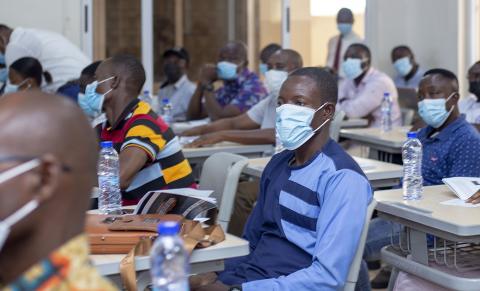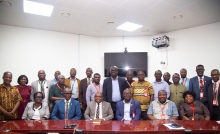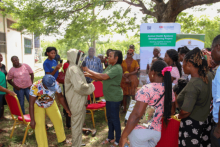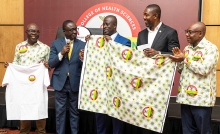The School of Veterinary Medicine of the Kwame Nkrumah University of Science and Technology (SVM-KNUST) in partnership with the Food and Agriculture Organisation (FAO) has organised a 5-day meat inspection and food safety training workshop for veterinary meat inspectors, butchers, meat handlers, and livestock traders (the meat value chain actors) on 14th to 18th March 2022.
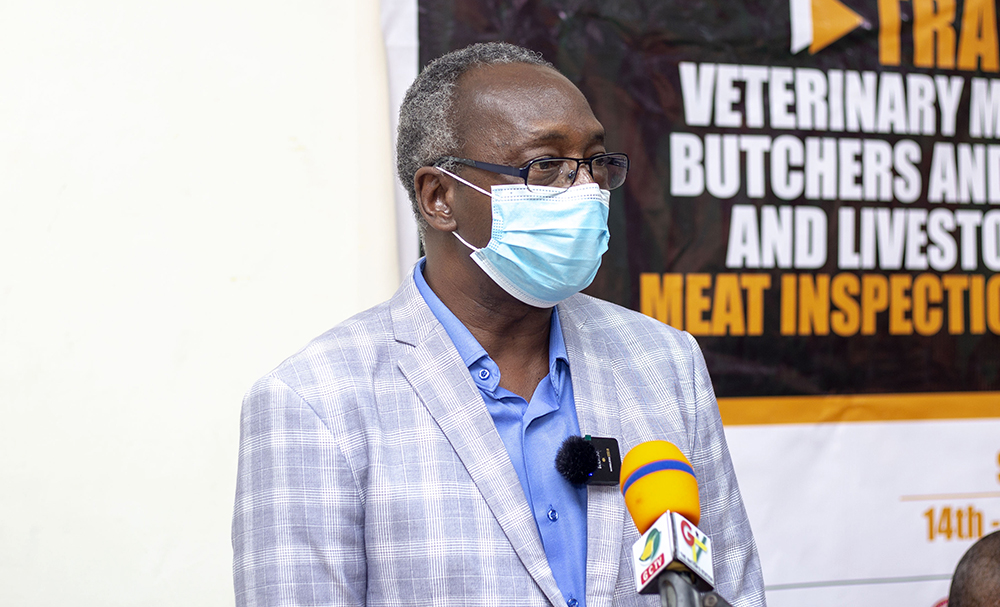
The workshop themed ‘Role of Meat Inspectors in the Meat Value Chain in Ghana’ was funded by the German-West Africa Centre for Global Health and Pandemic Prevention (G-WAC) and the FAO. The objective of the workshop, according to the Dean of SVM, Professor Benjamin O. Emikpe, was to educate participants on the appropriate hygiene and manufacturing standards as well as examine the role of meat value chain actors in the production of wholesome and safe meat. Professor Emikpe explained that zoonotic diseases have serious implications on human health, therefore, an inspection of meat at slaughter facilities is a method of surveillance for zoonotic diseases.
He hoped that the training workshop would provide a practical demonstration to veterinary inspectors on ante and post-mortem examinations at slaughter facilities.
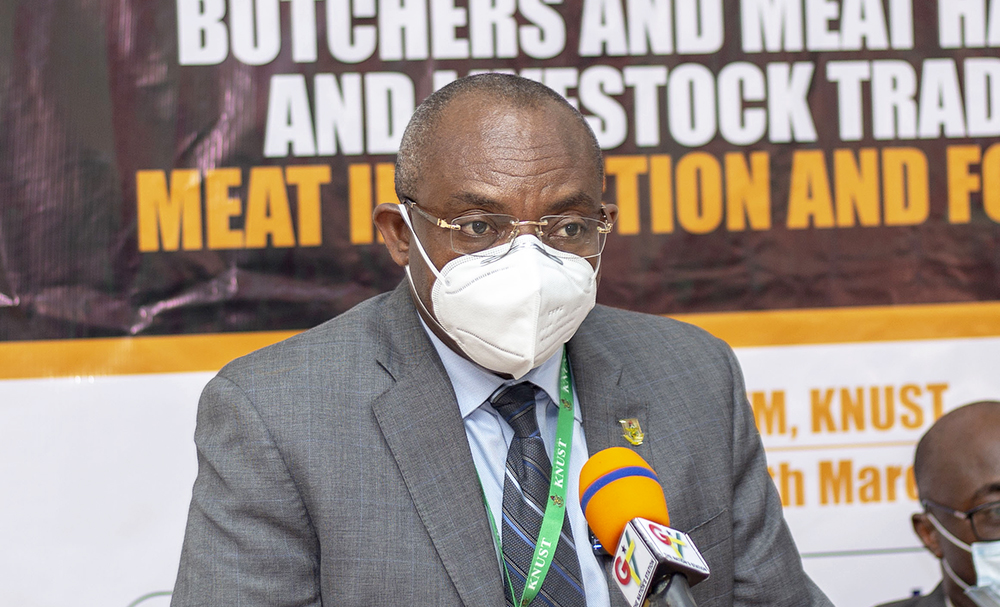
In his address, Professor Christian Agyare, Provost of the College of Health Sciences, disclosed that workshops such as this, provides the opportunity to partner with International Organizations to attract funding for similar projects for the School, thus, lauded the partnership between FAO and KNUST.
Professor Agyare also stressed the need for the participants to apply for Postgraduate/short courses available to them in the School of Veterinary Medicine to broaden their knowledge. He further urged them to serve as ‘Trainer of Trainers’ in their various regions to enforce the safety of meat. He appealed to the FAO to come up with a mechanism to monitor the progress of participants after the workshop and the application of the knowledge learnt in their work. He also used the opportunity to solicit for support for the completion of the SVM Complex.

The Country Team leader for the FAO, Emergency Centre for Transboundary Animal Diseases (ECTAD), Dr. Garba Maina Ahmed commended the partnership with KNUST. He encouraged the main actors in the meat value chain to appreciate their roles and responsibilities in ensuring the safety of meat for consumers. He assured that the FAO would continue to collaborate with the University to roll-out capacity building workshops. Dr. Ahmed impressed on the need for all stakeholders in the health sector to embrace the One-Health concept in combating these diseases.
“To tackle these emerging zoonotic diseases, we ought to adhere to the One Health concept where stakeholders in the environmental health, human health, and animal health work collaboratively,” he said.
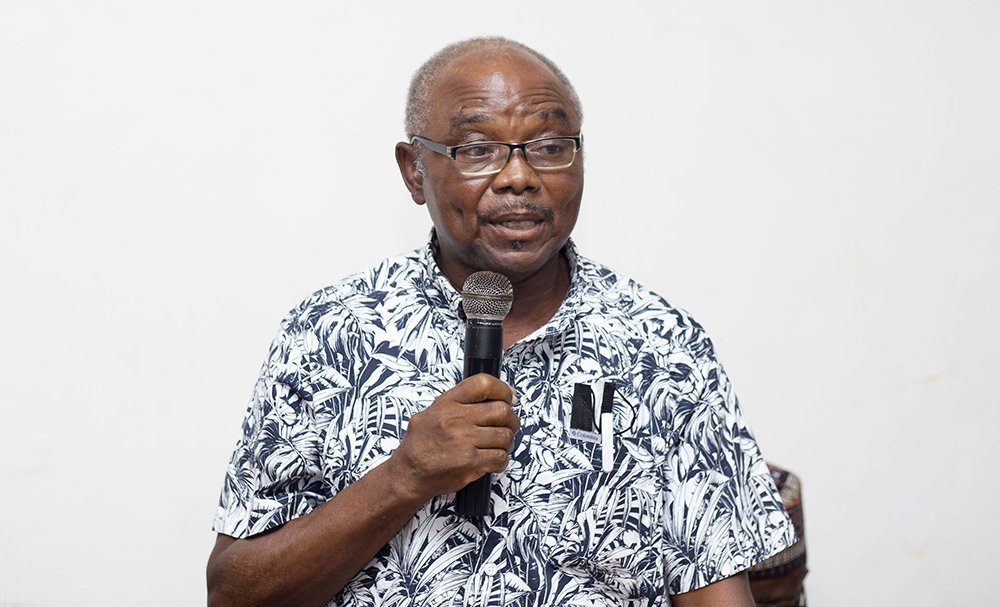
Representing the Director for Veterinary Services, Dr. Paul Opoku mentioned that the Veterinary Service Directorate has also modified the meat inspection regulations based in section 108 of the Public Health Act 2012, (Act 851) and has been passed into law by the Parliament of Ghana as Meat Inspection Act 2020 (L.I.2405) to enable its stakeholders to understand the implementation.
Dr. Opoku said that with the increase in the workforce in the meat inspection sector, it has become necessary to organise such training to sharpen the actors of meat value chain skills and capability in the activities carried out in slaughter facilities. He encouraged the participants to share the information gained from the workshop with other actors.
The Public Health Director for the Accra Metropolitan Assembly, Mrs. Florence S. Kuukyi revealed that the primary aim for meat inspection in slaughter facilities and abattoirs in Ghana is to protect public health by ensuring the food business operators fulfils their obligations to produce safe food. Participants were taken through some topics including Concept and Approaches to Meat Inspection; Slaughter procedures; Ante and post-mortem inspection; Zoonotic Diseases in Ghana; Treatment of condemned meat and Safe meat handling practices; non-conformity clauses (penalties) of Meat Inspection Regulation L.I. 2405, among others. They also toured the Kumasi Abattoir and had a practical session on ante and post-mortem examination.
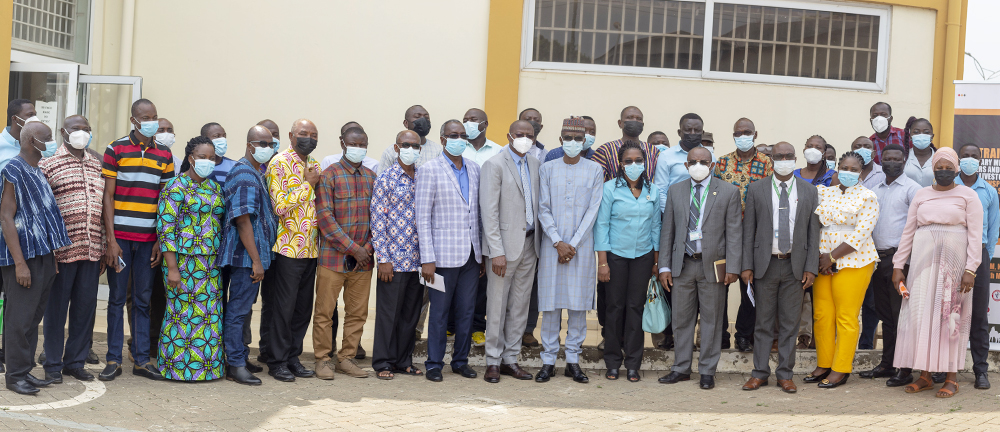
Sharing his experience from the training, Mr. Osman Salifu, on behalf of other participants, thanked the organisers for creating an avenue to learn about meat inspection and food safety through the workshop. At the end of the workshop, a total of 48 participants were awarded a Certificate of Attendance, signed by the Vice-Chancellor of KNUST and the FAO.

